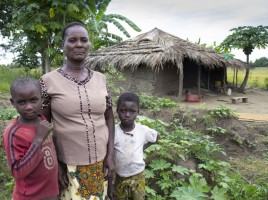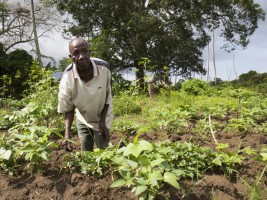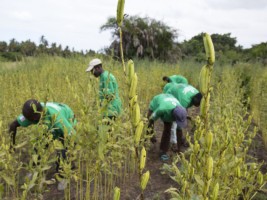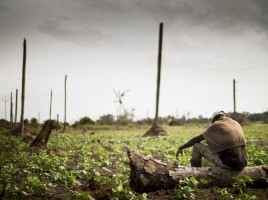Food, Income, Equality and Nutrition: promoting sustainable development and income generation through conservation agriculture
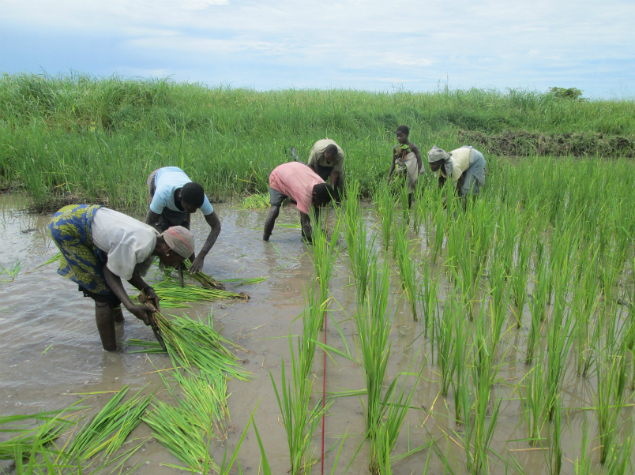
Mozambique is 185th out of 186 countries in the 2012 Human Development Index (HDI), 55% of the population is living below the national poverty line and it is rated the 5th most at-risk country in the world to extreme impact by climate change. 88% of the national population are smallholder farmers of which 53% are completely reliant on farming. 44% of children in Mozambique are chronically malnourished, undermining the countries’ potential socio-economic development.
Target communities are located in two of the most remote and underserved districts in Zambezia province in the Zambezi river basin. Household poverty increased in those areas by 16% between 2007 and 2010. Subsistence manual rain-fed agriculture is the primary livelihood activity of the rural population. Despite this, their own production only satisfies between 30-50% of their caloric needs, the rest is purchased from earnings from on-farm labour. Their agriculture is increasingly subject to the effects of climate change.
A cyclone struck the area in 2012 resulting in over 6,000 people being dependent upon food and seed aid and in 2013, adjacent districts saw up to 36,000 people loose food production and have homes damaged in river-based flooding. Concerns’ August/September 2012 baseline showed that the poorest dedicated farmers purchase 62% of their food and spend 83% of their money on food, their own production only accounting for 38% of their food needs.
Chronically low returns to farmers’ in the project areas maintain their poverty and increase their vulnerability to food production and price shocks. These farmers are net purchasers of food, to the detriment of their being able to invest in capitals and welfare which could break their poverty trap cycle. Underproduction is not a new phenomenon, Mozambique’s crop yield has been stagnant since 1996, but the increasing climate irregularity is exacerbating the negative consequences.
The main objectives of this project are :
- Pro-extreme poor approaches as recommended by Concern adopted by Ministry of Agriculture extension workers and private agri-business.
- Increased food security for extremely poor households.
- Extreme poor priorities are integrated into Government Nutrition and Social Protection Policy and Strategy.
- Women and other vulnerable groups have increased control over decision making and resources at household and community levels.
- Poor farm families have reduced vulnerability and increased capacity to respond to hazards.
In addition to the direct beneficiaries, with an average of over 5 people per household, at least 32,250 people will benefit from the FFSs and the training around HVCCs each year. In addition, each woman will be supported to promote IYCF practices to 15 others then up to 30,900 women will benefit from the IYCF practice training.
Final Report Summary
The project has yielded significant improvements in the local communities’ quality of life, especially with regards to food security:
- By the end of the project, 53% of food consumed in the community was produced by local farmers. Additionally, 33% of children aged 6-23 months and 50% of adults over 16 years in FFS communities consumed 4 or more food groups over the past 24 hours.
- Farmers are now earning 31% of their income from crop sale and reinvesting 7% of their income in inputs.
- The role of women in household-related decision-making was also improved. Women were consulted 92% of the time in cash crops sale, 95% of the time on buying non-staple food, 85% of the time on the purchasing of agricultural inputs, and 91% of the time on savings decisions.
- Lastly, 2 evidence-based advocacy documents were submitted to the civil society-government Nutrition Working Group.
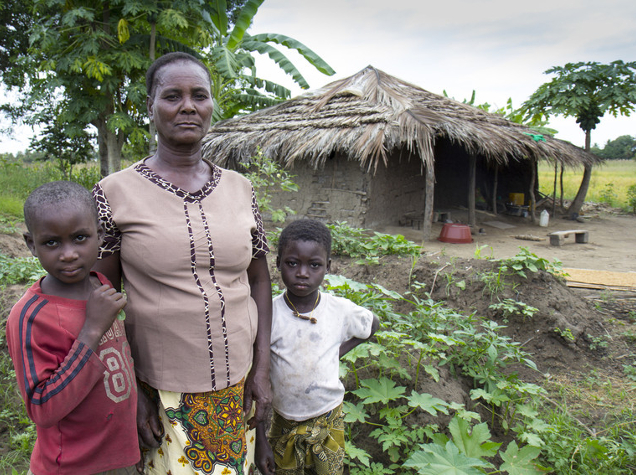
Albertina Gimo and her grandchildren, Michaelo and Sharona Aurelio, stand outside their home in Chacuma, a small village on the mouth of the Zambezi River. She is participating in a farmer field school, where she is learning about best practices to grow vegetables. © Concern Worldwide
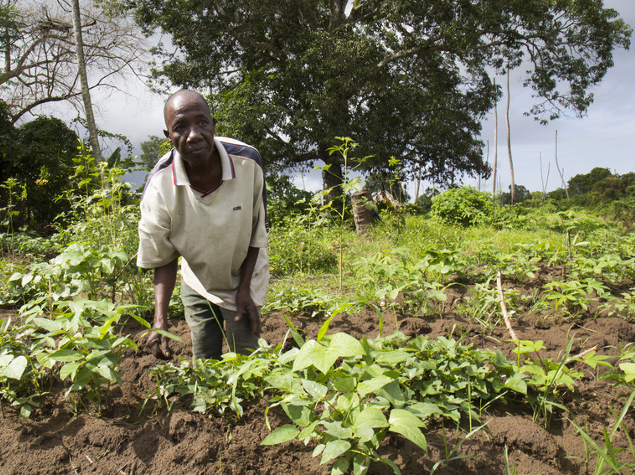
Alberto Simão, tends to the garden outside his home in Madjimanos, a small, coastal community in Zambezia. He and his wife, used to rely on coconut trees for income until lethal yellowing disease wiped out most of the coconut trees in their area. © Concern Worldwide
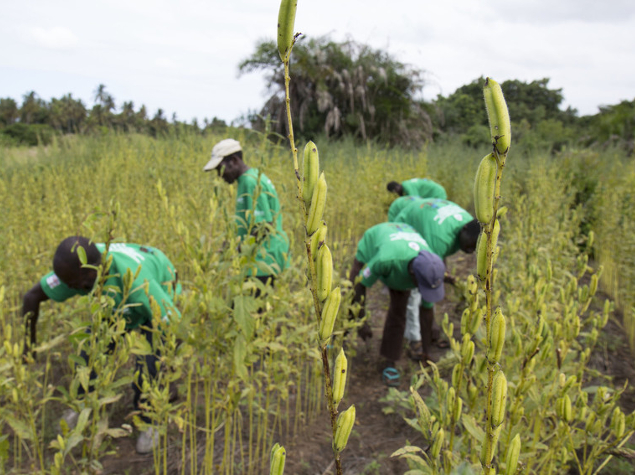
Farmer field school participants harvest sesame at the demonstration plot in Chacuma, a small village on the mouth of the Zambezi River. The farmers are receiving approximately 45 meticais ($1.40) per kilo for sesame, a price that exceeds other crops in the area. © Concern Worldwide
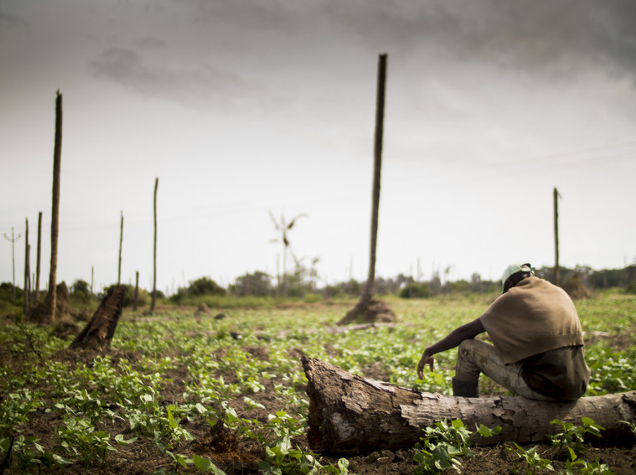
Coconut plantations in Zambezia province have been decimated in recent years by Lethal Yellow Disease. Concern Worldwide has been working to encourage small farmers to grow replacement crops such as sesame © Concern Worldwide
